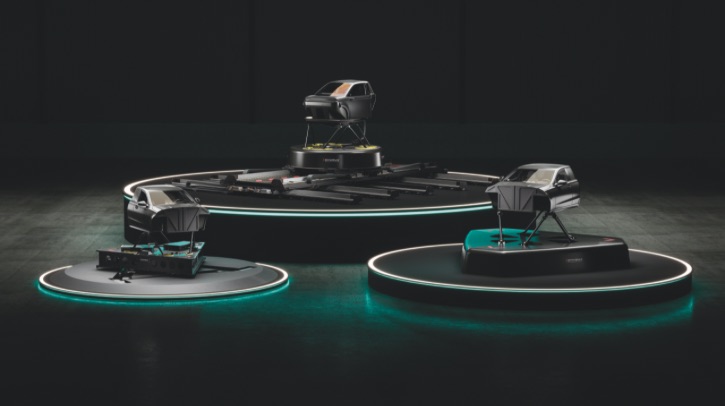Dynisma has stated that its virtual testing technology can save automotive OEMs more than US$10m per vehicle development program through reduced physical prototypes.
Already in use by multiple automotive OEMs, Dynisma Motion Generators (DMGs) offer benefits by setting new standards, pairing the lowest latency with the highest bandwidth to create “most immersive, realistic, and responsive driving simulation experience in the world”, the company says.
Dynisma states that an average vehicle prototype costs around US$500,000, and more than 50 individual prototypes are typically built for a single vehicle development program. This means physical testing is an extremely expensive part of the development of a new car for an automotive OEM.
Virtual testing using the latest simulators, such as Dynisma’s DMGs, can reduce the need for actual prototypes by 40%, translating to double-digit million-dollar savings. In bringing “life-like experience” to automotive OEMs, development drivers get authentic feedback while engineers can properly correlate almost any data.
Designed for automotive manufacturers and suppliers intended for advanced vehicle development and testing, Dynisma’s simulators also have the potential to reduce new vehicle time to market by 50%, with significant overall CO2 emissions savings achieved through reductions in fuel and the use of consumables, such as tires, according to Dynisma.
Simon Holloway, commercial director, said, “Testing in the real world is a vital part of the new vehicle development process, but it is time-consuming, costly and has a significant environmental impact for an automotive OEM.”
Developed and built in-house by a team of world-class engineers, Dynisma simulators are being used by leading automotive OEMs and motorsport teams around the world. In March, it was announced as McLaren’s official motion simulator partner.


